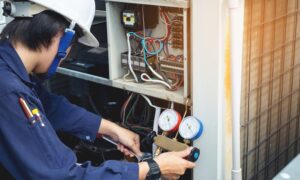Residents of College Station, Texas, have raised concerns about the noise generated by Amazon’s Prime Air drones.
TakeAway Points:
- College Station residents are frustrated by Amazon Prime Air drones’ noise, with complaints likening it to a “giant hive of bees.”
- Amazon requests permission from the FAA to expand the delivery region and increase drone deliveries from 200 to 469 flights per day.
- In response to community concerns, Amazon intends to move operations by October 2025 and implement quieter MK30 drones.
College station residents complain
John Case, a semi-retired orthodontist, described the sound as “a giant hive of bees,” noting that the drones are a common sight and sound in his neighbourhood. Nurses, police officers, and firefighters working night shifts have reported that the noise disrupts their sleep during the day.
College Station Mayor John Nichols wrote to the Federal Aviation Administration (FAA) in July, stating that residents have grown tired of the drones’ loud buzzing, particularly during take-off, landing, and some delivery operations. Ralph Thomas Moore, a local resident, played a recording of a chainsaw at a city council meeting to illustrate the noise level, which he said is a “huge invasion of our personal space.”
Bryan Woods, College Station’s city manager, reported that city officials tested a Prime Air drone and found noise levels between 47 and 61 decibels. For comparison, chainsaws typically measure at 125 decibels, according to the Occupational Safety and Health Administration.
Amina Alikhan, an internal medicine doctor, likened the drones to “a fly coming by your ear over and over and you can’t make it stop,” adding that the noise disrupts both outdoor and indoor activities.
Regulatory Obstacles and Growth Strategies
Amazon’s Prime Air program has faced several challenges, including regulatory hurdles, missed deadlines, and layoffs. The company started testing drone deliveries in 2022, with College Station serving as the main testing ground. Amazon is seeking FAA approval to increase deliveries to 469 flights per day, up from the current 200, and to extend operating hours from 7 a.m. to 10 p.m. The company also aims to expand its delivery area to 174 square miles, up from the current 44 square miles.
In May, the FAA allowed Amazon to fly its delivery drones over longer distances without staffers on the ground observing each flight.
“We appreciate the community of College Station and take local feedback into account wherever possible when making operational decisions for Prime Air,” Amazon spokesperson Sam Stephenson stated.
He added that the company is proud of the thousands of deliveries made and the hundreds of customers served.
Amazon’s measures to address the community challenge
Amazon plans to introduce a smaller, quieter drone called the MK30, which is expected to start operating in College Station and Phoenix once FAA approval is received. The MK30 is designed to reduce perceived noise by almost half and will fly at a higher cruising altitude of between 180 and 377 feet above ground level, except when descending to drop a package.
Despite these advancements, many residents want Amazon to relocate its drone operations. Matt McCardle, head of regulatory affairs and strategy for Prime Air, informed residents in a July Zoom meeting that the company would not renew its lease in College Station and would move elsewhere by October 2025.
Bob Yancy, a College Station City Council member, mentioned that Amazon has agreed to reduce the number of flights per hour. He plans to propose relocating the drone port to a former Macy’s store site, now owned by the city and located in a nearby shopping mall. In April, Amazon announced plans to integrate Prime Air into its same-day delivery network, aiming to do so in the Phoenix area, where the launchpad will be on the same site as an Amazon warehouse.

































